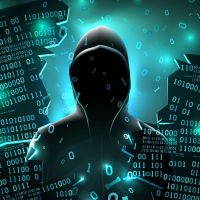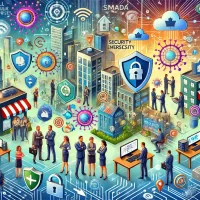A cyber attack on the City of Saint John in November 2020 may have been just a headline for many, but for a group of students at Nashwaaksis Middle School, defending such an attack is the stuff career ambitions are made of.
As organizations increasingly rely on technology, the ransomware attack that took down the city’s website and affected its emergency dispatch system forced the city to rebuild its network and launch a new website.
The attack cost Saint John millions and was eventually traced back to a breach through a phishing email.
Those types of security breaches are what two teams of clever Grade 6-8 students are training to detect during their lunchtime and after school practices.
Grade 8 student Caleb Jeffries sits at a computer in a dimly-lit classroom. He is staring at lines of code and commands on his computer — practising for the national competition that will put his cybersecurity skills to the test.
He hopes he and his team will repeat as champions of CyberTitan, a cybersecurity competition for middle and high school students.
Fast forward to this year and Jeffries and his team, the CyberDragons, are preparing once again for the national competition after clinching first place in their division at the semi-finals.
Ten high school teams and three middle school teams make it to the nationals — two of the middle school teams are from Nashwaaksis, the only ones from Atlantic Canada in the finals.
The competitions involve hours-long scenarios where the students are responsible for identifying and the resolving cyber threats that are thrown at them.
Gary Gautreau, the school’s technology teacher and CyberTitan coach, said this is the school’s seventh year in competition, with 13 teams in those seven years making the top three to go to nationals. On top of that, he said Nashwaaksis has taken home four first-place national titles.
He said many people think that cybersecurity experts only consist of engineers or computer scientists, but he said the field needs workers of all sorts.
These jobs include planners and examiners, people working on the detection side of things, people with more technical skills who can respond to the crisis when something bad happens, and then people who try to figure out afterwards what went wrong.
“There’s a role in cyber for everybody.”
Click here to view original web page at www.cbc.ca








